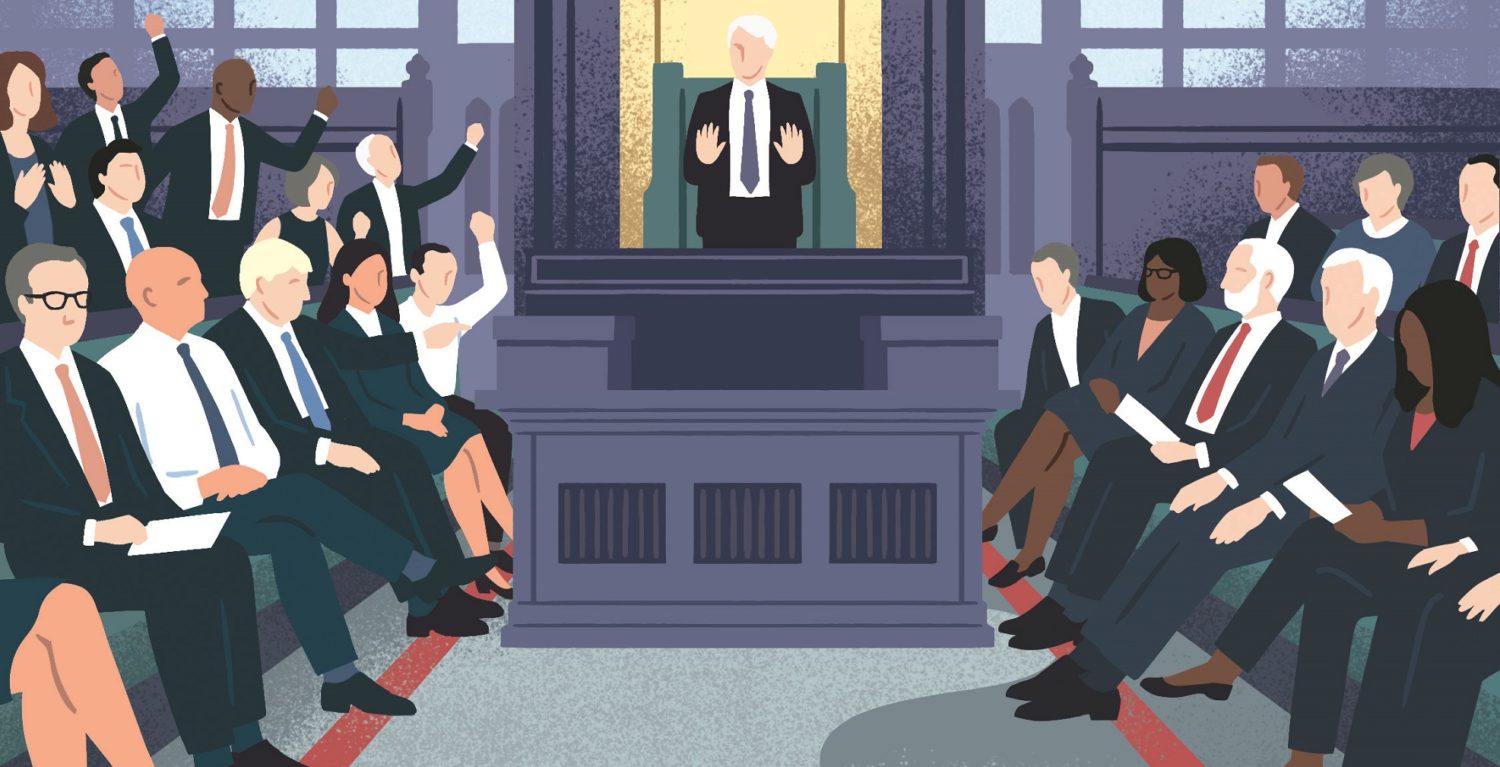Devastating defeat
Post-election analysis from Miatta Fahnbulleh, Wes Streeting MP and Tom Gardiner.
Miatta Fahnbulleh
The Labour party is still reeling from a devastating election defeat in which many of its traditional voters turned their backs on a party they had always voted for. Much will be written about what Labour did wrong in this election in the weeks and months to come. But the one thing the party did right was to grasp the scale of the economic and environmental challenge the country faces and offer ambitious solutions in response. Against
the backdrop of the longest squeeze in living standards for generations, economic growth that has passed many communities by, entrenched poverty and a climate emergency; Labour offered up a prospectus that began to rise to the challenge. It wasn’t perfect and there were flaws in its plan, but it would have undoubtedly begun the process of transforming our economy. Those eager to reject Jeremy Corbyn and everything he stood for would be wrong to abandon this ground.
But Labour must also learn from this election. Policies that are individually popular with voters simply did not cut through, in part because they were pitched as a series of give-aways with no clear story about the change Labour was seeking to create. A 10-year economic agenda was crammed into a programme for one parliament and voters rightly questioned whether it could all be delivered. Critically, too much of the change that Labour sought to achieve was top-down. Rather than pushing power out to root change in communities, it sought change through an expanded national state with regional offices. For communities distrustful of Westminster and disconnected from national government, Labour failed to tell the story of how it could deliver radical change by giving them more say to make it happen. Labour’s route back to power lies in building on, not binning, its answers to the problems the country faces. But its response must move on from a top-down formula that isn’t sufficiently rooted in the lives of the people it seeks to change.
Miatta Fahnbulleh is the chief executive of the New Economics Foundation
Wes Streeting MP
As a child of the 1980s who grew up on a council estate, in a single parent family relying on benefits, I understand better than most the consequences of what happens when Conservative success arises as a result of Labour’s failure. When Labour loses, our people suffer.
This is the worst defeat for Labour since 1935 and our response to it must match the scale of this political crisis. In the aftermath of a defeat like this, we must tell the truth. Brexit was a big challenge for us, but it wasn’t the biggest problem on the doorstep: Corbynism was. Jeremy Corbyn and his supporters had everything they wanted: the leadership, the manifesto, the Brexit policy, the National Executive Committee and the political strategy. This defeat is theirs.
There is no hope in nostalgia, nor fresh inspiration to be found in old orthodoxies. Losing isn’t radical. It is in danger of becoming normalised. No one Labour tradition has a monopoly on wisdom. The Labour party wins when, together, we turn our face firmly to the future. It’s time for us to move on from Corbynism and to build a fresh centre-left politics offering change we can believe in.
Wes Streeting is the Labour MP for Ilford North
Tom Gardiner
The result of the general election has cast the future of the NHS into uncertainty. Rightly, our National Health Service was
a central issue in the campaign and one which I think Labour managed to maintain the upper hand on. Of special note was the sheer number of NHS workers who spoke up publicly about their experiences in an underfunded and understaffed healthcare system; social media was littered with testimonials from staff up and down the country. Likewise, activists were well-versed in making local NHS cutbacks a key talking point on the doorstep. But ultimately, this wasn’t enough. The lessons we learn from inward reflection and discussions with swing voters will be crucial in optimising the left’s approach to policymaking and campaigning around the NHS going forward.
Soon we will be entering a winter which, by all accounts, is set to be one of the worst since records began. In the week of the election every single major accident and emergency department in the country failed to meet waiting time targets for the first time ever. We need to develop a formidable strategy for communicating the significance of these performance figures, including the rebuttal of accompanying spin from the Conservative party. This means maintaining an impressive level of NHS staff and patient testimonials; engaging regional and national media will be crucial to this. We will also need to develop networks of NHS staff so that workers feel supported in voicing their concerns.
And then there were the scores of NHS pledges made by the Conservative party during the election. They promised 40 new hospitals, record investment, 50,000 more nurses and a plan to fix social care. All of these received their due scrutiny at the time, but we must now be unrelenting in holding the Conservatives to account on each and every one of their misleading pledges. Whilst this is undeniably a difficult period,
it is also a time for exciting new policy and the Fabian Society has the opportunity to play a pivotal role in the development of Labour’s new health and social care agenda. The NHS will not cease to be at the centre of political debate, and you can expect it to be just as central an issue at the next election. So, get involved in the Fabian Health Network now to be part of an important movement in the years to come.
Dr Tom Gardiner is a Fabian executive committee member and co-chair of the Fabian Health Network
Read more post-election reactions here.
Photo credit: Lucy Davey
